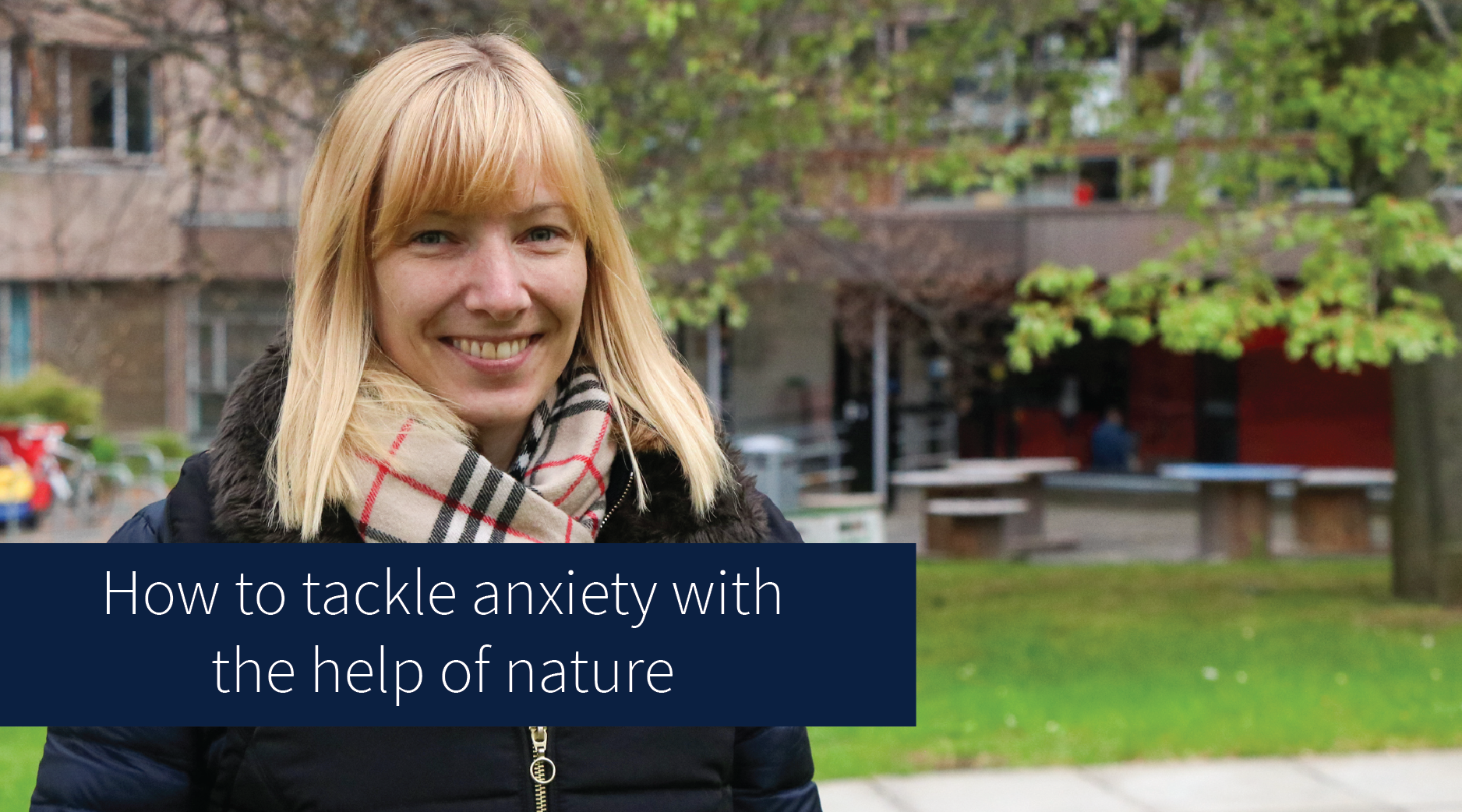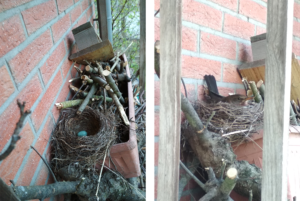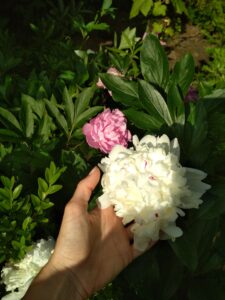How to tackle anxiety with the help of nature

For Mental Health Awareness Week (9 to 15 May 2022), Kim Vender, Biodiversity and Climate Resilience Projects Officer, explains how engaging with nature can help.
We’re all carrying stress
If someone asks us “How are you?” we tend to give that generic answer “I’m fine, thanks”. But, to be honest, who is really “fine” nowadays? We all have a stress package that we carry around with us, be it related to work, relationships, studies, family, or finances – and then there are also all these other things like Covid, war, and the constantly deteriorating state of our home planet.
It’s easy to become anxious. Consuming negative news every day is not only tiring but can lead to a state of anxiety and a feeling of helplessness and being overwhelmed.
There are many different forms of anxiety ranging from an occasional anxiousness to specific anxiety disorders, which can impede daily life due to frequent states of fear, persistent worry, up to panic attacks. If you cannot remember the last time, you were truly relaxed, think about consulting the NHS or your local GP for advice.
NHS website: Overview – Generalised anxiety disorder in adults [external]
A form of anxiety that psychologists only recently identified and started to investigate is eco-anxiety, described by the American Psychological Association (APA) as:
Feelings of loss, helplessness, and frustration due to [the individual’s] inability to feel like they are making a difference in stopping climate change.
Until now, it is not officially recognised as a mental disorder or a medical condition but it can combine with and exacerbate existing other anxieties.
What is Eco-Anxiety? [external]
How can we soothe anxiety?
The best way to soothe persistent anxiousness is to get active, according to the American Psychological Association (APA), which I interpret as:
Developing plans to adapt and cope, foster optimism, and find a source of personal meaning.

A bird nest and egg in April/May from my garden back in Berlin
This can take many different forms ranging from increasing self-awareness about one’s own needs to (re-)connecting with others and building a sense of community. Nature is a gold mine for wellbeing in this regard. The idea of ‘social prescribing’ is an emerging option that health professionals can turn to, which means referring people to different local, non-clinical services, such as engaging with nature (nature prescribing).
A 2019 study concludes that spending 120 minutes per week in nature – no matter if spent in one session or several smaller ones – brings considerable health and wellbeing benefits. The two hours threshold is a hard one because exposure to nature under 120 minutes per week had no significant self-reported benefits to the participants of the study.
The health benefits of being in and engaging with nature are well-known and even thought of as health interventions by experts. In essence, from my reading:
It significantly reduces stress (measured for instance by the level of stress hormones), depression, and anxiety, it can lower blood pressure and reduces feelings of isolation.
Gardening on a psychiatric inpatient unit: Cultivating recovery [external]
Activities in nature to boost wellbeing
 Gardening, for instance, can also be a very good distraction from unpleasant thoughts – something I can confirm based on my own experience. Moreover, being in nature (also known as green care) can not only alleviate anxiety, it can enhance our immune system, increase self-esteem, lift our moods, and promote calmness.
Gardening, for instance, can also be a very good distraction from unpleasant thoughts – something I can confirm based on my own experience. Moreover, being in nature (also known as green care) can not only alleviate anxiety, it can enhance our immune system, increase self-esteem, lift our moods, and promote calmness.
If gardening is not for you, don’t despair. Not only gardening or horticultural activities are beneficial. The following ideas are valuable for mental health and wellbeing, too:
- walks or hikes in nature
- exercise in nature (think of doing yoga or running in a park or joining one of those boot camps in the Meadows)
- socialising in a natural environment.
Opportunities in Edinburgh
In Edinburgh, we are lucky to have many green and blue spaces like parks, ponds, canals and rivers, hills and beaches. We even have a little bit of woodland to enjoy (e.g. Corstorphine Hill). And as solace for those of you who want to start with little steps: you can even reap benefits from caring for plants at home.
If you are ready to go out, there are many opportunities to get involved in organised activities, e.g. by local community groups, student societies, or the university. Examples would be:
- King’s Buildings Permaculture Garden Society
- Duddingston Conservation Society
- Various Friends of Park groups (e.g. the Friends of the Meadows and Bruntsfield Links, FOMBL)
- iThrive Edinburgh
- Venture Trust
Nature cannot heal everything
As a disclaimer, we need to be aware that nature cannot heal everything. If you feel you need help to get out of a state of constant anxiety or depression, please contact professional helpers. Your doctor, nurse, and counsellor are all there to support you. In the end, we want you to feel good about yourself and life. We can all utilise nature to get to this definition of wellbeing, from the American Psychological Association (APA):
Psychological well-being includes positive emotions, a sense of meaning and purpose, and strong social connections.
By doing so, we not only benefit from nature but might also start valuing it differently.
Additional sources
Gardening as a mental health intervention: a review [external]
Evaluation of a Horticultural Activity Programme for Persons With Psychiatric Illness [external]





Recent comments